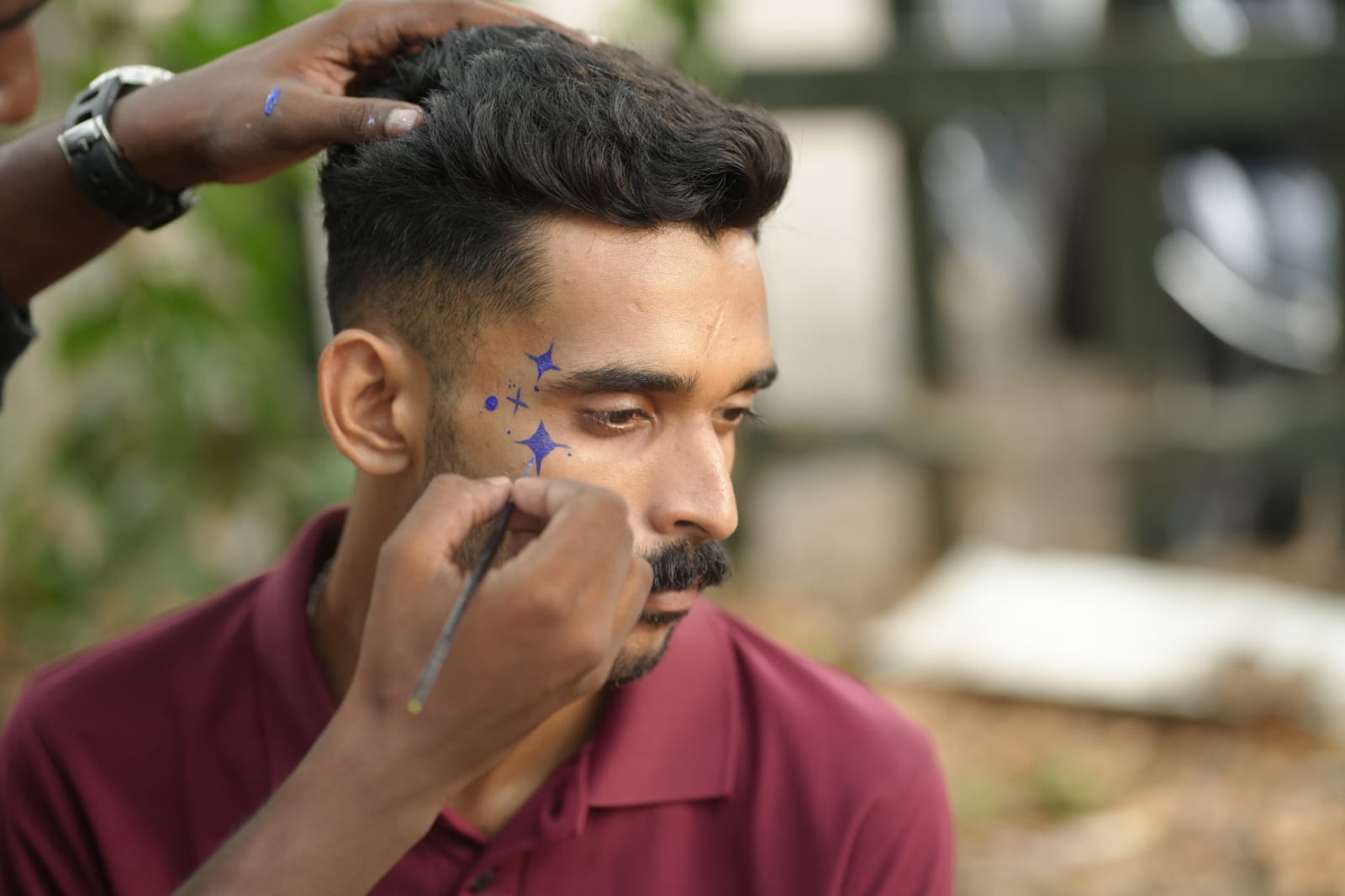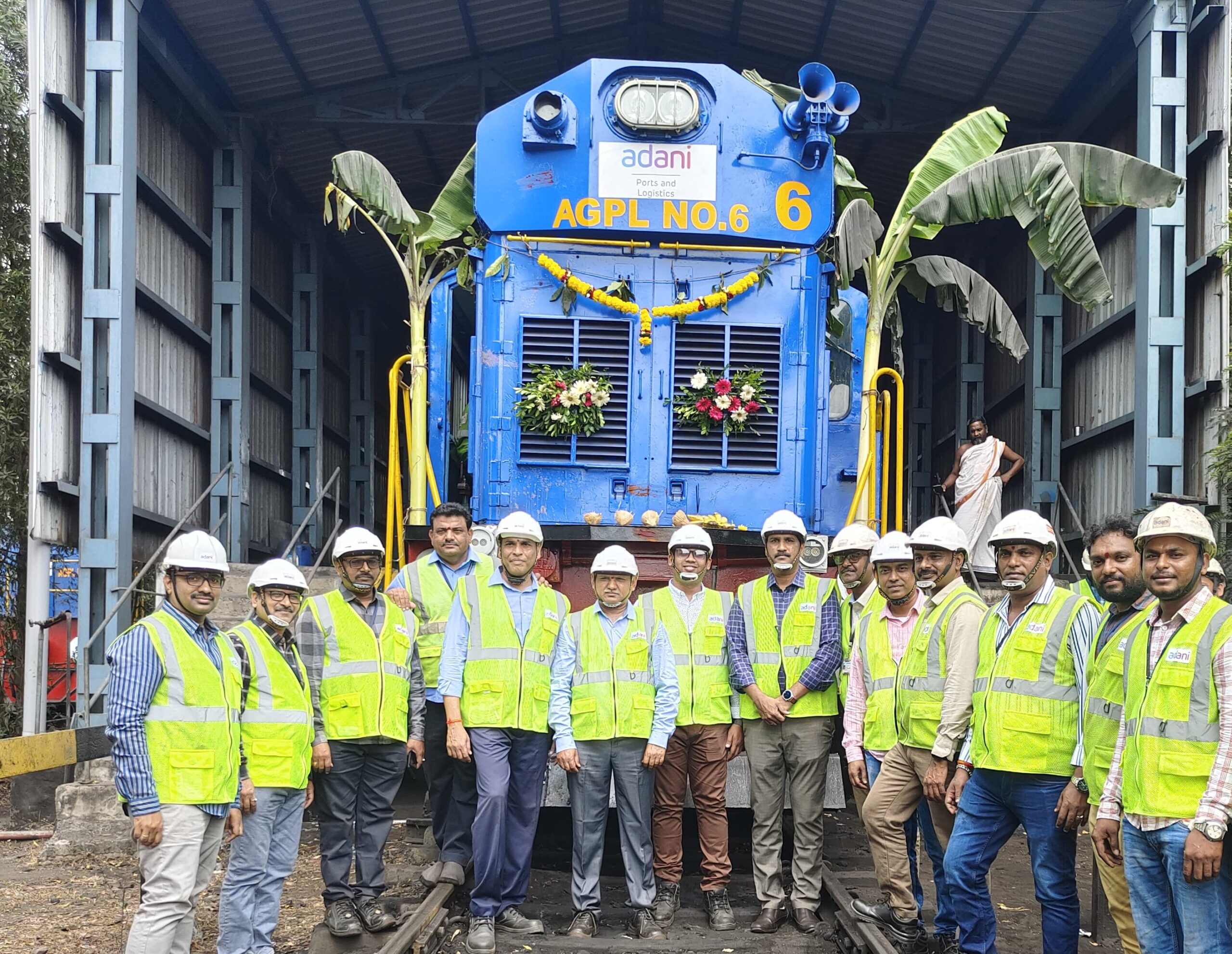Vibrant Face Painting Sparks Autism Conversations in Kochi
Kochi, 02-04-2025: Faces became art, smiles turned into statements, and the community united under one vibrant awareness theme ‘autism acceptance’. Celebrating World Autism Awareness Day, volunteers of Prayatna, a leading multidisciplinary center offering specialized services for both children and adults, painted faces of common people in Panampalli Nagar Central Park. with a burst of blue—the universal color of autism acceptance, each design carried a story, sparking conversations about autism.
World Autism Awareness Day, which is observed annually on April 2nd, is a global initiative to raise awareness about autism spectrum disorder (ASD) to promote inclusivity, understanding, and support for individuals with autism.

“We didn’t just paint faces; we painted perspectives. By coming together as a community and celebrating diversity through color, we hope to develop a more inclusive and understanding society,’ said Dr. Joseph Sunny Kunnassery, Founder of Prayatna, Kochi. In addition to the face painting, the event distributed informative pamphlets on autism awareness. As part of the Autism Awareness Day, free autism screening camp will be organised from April 1st to April 30th for children aged below 18 years.
“This is a meaningful gesture, contributing to the awareness and understanding towards the Autism Spectrum Disorder community” said Neenu, who participated in the face painting event.
The Pap Scene Launches Paparazzi-On-Demand Service for Public Figures
Mumbai, India – April 2nd, 2025 – The Pap Scene, India’s first paparazzi-on-demand service, launched today, offering a unique opportunity for public figures who deserve the spotlight but often go unnoticed by the media. From actors and musicians to rising stars in sports, stand-up comedy, podcasting, and social media influencing, The Pap Scene captures high-profile personalities in locations of their choice, creating aspirational moments that elevate their public image and connect them with millions of fans.
As part of this initiative, The Pap Scene has onboarded leading Mumbai-based paparazzi media outlets with a combined reach of over 10 million followers, ensuring that every sighting gets the attention it deserves. These major outlets regularly feature A-list celebrities, and now rising stars can have their moments captured and shared with the same prominence. Whether it’s a casual lunch at a popular café or attending a high-end event, The Pap Scene guarantees that every sighting is accompanied by extensive paparazzi media presence.
“We saw a major gap in the way public figures are portrayed in the media,” said Vinay Maurya, Founder of The Pap Scene. “There’s a whole group of people who are just as deserving of the limelight but don’t have the media attention they need. With The Pap Scene, we’re bringing this experience to rising stars, giving them the exposure they deserve and helping them become icons in their own right.”
The Pap Scene operates on a monthly retainer model with four customizable packages, ranging from basic “Spotting” services to tailored, high-profile exposure at major events. Clients can choose from packages that cover everything from casual hotspots to elite venues, ensuring every sighting is aligned with their image. Each moment captured is shared across major paparazzi media outlets, guaranteeing maximum visibility.
Service Packages:88fccc
- Spotlight Starter: 2 “Spottings” per month at casual hotspots like airports, cafés, and gyms.
- Rising Star: 4 “Spottings” per month, including locations from the “Spotlight Starter” package, plus high-end restaurants, clubs, and more exclusive venues.
- Red Carpet Ready: 8 “Spottings” per month, which include all the previous package locations, along with coverage at major events, high-profile parties, and festivals.
- A-List Exclusive: A custom number of “Spottings” for maximum exposure, with locations and events tailored to the client’s specific preferences.
With over 20 years of PR experience and running Thought Process Communications, the team behind The Pap Scene leverages its deep media connections to ensure each client’s public positioning aligns with their personal and professional brand goals. The service’s ability to combine exclusive media visibility with high-profile paparazzi outlets gives clients the opportunity to increase their negotiating power and elevate their marketability with brands.
“The value of being seen in the right places cannot be underestimated,” added Maurya. “Whether it’s a casual day out or a glamorous event, the right exposure at the right time can significantly boost a public figure’s brand, helping them gain the recognition and opportunities they deserve.”
The Westin Mumbai Wins ‘Socially Responsible Hotel of the Year’ 2025
The Westin Mumbai Garden City has been awarded the ‘Socially Responsible Hotel of the Year’ in the Upscale – Midscale category at the Hotelier India GM Summit & ESG Excellence Awards 2025, Western Region. This recognition underscores the hotel’s dedication to sustainability, community engagement, and inclusive hospitality.
“At The Westin Mumbai Garden City, we believe in creating a positive impact—not just for our guests but also for our community and the planet,” said Sumeet Suri, General Manager, The Westin Mumbai Garden City. “This award motivates us to continue innovating and setting new benchmarks in responsible hospitality.”
The hotel actively fosters social impact through initiatives like which empowers underprivileged girls by funding their education, offering on-the-job training, and providing career-building opportunities. In addition, The Westin Mumbai Garden City champions inclusivity with a 26% women workforce, a goal to increase it by 10%, and employment opportunities for specially-abled individuals, ensuring they thrive in an inclusive environment.
By integrating Environmental, Social, and Governance (ESG) principles into its operations, the hotel has prioritized eco-friendly practices, skill development programs, and initiatives that promote diversity and work-life balance. The Life on Time initiative further supports associates, ensuring flexibility and well-being.
Through these efforts, The Westin Mumbai Garden City continues to lead the way in responsible hospitality, proving that opportunity and empowerment drive lasting change.
Central Bank of India Joins PSB Alliance for Digital Supply Chain Finance
Central Bank of India, a leading Public Sector Bank has entered oOU with M/s PSB Alliance Private Limited on 27.03.2025 for Digital Supply Chain Finance. The MoU is inked by Mr.S.S. Murty, General Manager-MSME. Central Bank of India and Mrs. Anjali Mohanty, MD & CEO, PSB Alliance Private Ltd in august presence of Executive Directors of Central Bank of India Mr. M V Muralikrishna and Mr. Mahendra Dohare.
Under this partnership, Central Bank of India will leverage the digital platform offered by PSB Alliance Private Limited for end-to-end, paperless financing for supply chain participants. This initiative aligns with Bank’s commitment to digital transformation, financial accessibility and risk-optimized lending for businesses of all sizes.

Adani Gangavaram Port inducts 2 new locomotives at the port
Visakhapatnam: 02nd April, 2025: Adani Gangavaram Port, the deepest and one of the most modern ports in India today announced the addition of 2 new WDG3A locomotives to its railway infrastructure, marking a significant step forward in the port’s efforts to increase capacity and productivity. This strategic enhancement aligns with Adani Gangavaram Port’s commitment to establishing a seamless logistics network that supports rapid and efficient cargo movement across the region.
The induction of 2 new locomotive WDG3A as part of the ongoing efforts to enhance capacity and productivity at the port which includes upgrades to its railway network, enhanced cargo handling facilities, and expansion of storage and warehousing solutions. These initiatives are designed to support the growing demands of the region’s logistics needs. The addition of these locomotive represents a significant stride in improving the rail infrastructure within the port, aligning perfectly with the port’s commitment to provide top-tier logistics services

Adani Gangavaram port is investing significantly in the infrastructure of its railway network, cargo handling, storage, and warehousing solutions. To enhance vessel productivity, 2 additional cranes have been commissioned in the previous quarter. Adani Gangavaram port has surpassed its previous records in its marine, railway, road, and conveyor facilities by the focus and investment in infrastructure made in cargo handling and railway facilities. The port expects to set further operational records in the coming year and deliver industry best services.
According to Adani Gangavaram Port Limited management “We are extremely delighted with the induction of an additional 2 new locomotives of the WDG3A is a witness to our commitment to enhancing efficiency and better serving our customers. These enhancements will elevate our operational standards and contribute to our mission of exceeding customer expectations. We at Adani Gangavaram Port offer substantial economic benefits to Indian importers combined with highly efficient port operations and an evacuation system with a faster turnaround time & delivery. We are happy to see the trade derive benefits of modern deep-water infrastructure.”
Bajaj Broking Cuts MTF Charges to Support Investors
Mumbai, April 2, 2025: Bajaj Broking, a Bajaj Finserv Group company, has announced a significant reduction in Margin Trading Facility (MTF) charges, aimed at enabling investors and traders to optimise capital and seize opportunities during evolving market conditions.
Starting from April 1, 2025, MTF interest rates under Freedom Pack has been reduced from 18% p.a. to 14.99% p.a., and under the Professional Pack, from 14% p.a. to 11.99% p.a.
Spokesperson from Bajaj Broking said, “At Bajaj Broking we keep investor interest first. We have lowered our MTF charges to make leveraged trading more affordable when investors need flexibility the most. Our goal is simple: help traders and investors make their capital work harder, reduce their borrowing costs, and make the most of investing opportunities.”
MTF, a regulated service, allows investors to buy stocks by paying only a part of the total value, with Bajaj Broking funding the remaining amount. This gives investors the ability to increase their market exposure. Interest is charged only on the borrowed amount, and pledged collateral is required as per SEBI guidelines.
In addition to the revised MTF benefits, Bajaj Broking offers low-cost brokerage through two flexible pricing plans – the Freedom Pack and the Professional Pack – designed to suit different trading styles. The Freedom Pack, which is free of cost, offers simplified pricing at ₹20 per order for delivery trades and ₹20 per order for F&O. The Professional Pack, which costs just ₹2,500 for an annual subscription, offers more competitive rates, with delivery trades at just ₹10 per order and F&O orders at ₹10 each. These plans are built to empower traders with cost efficiency, transparency, and choice.
Axis Bank Launches B2B Collections Solution for Fortune 500 on Bharat Connect
Chandigarh, April 04, 2025: Axis Bank, one of the largest private sector banks in India, today announced that it has partnered with a Fortune 500 company in India to provide B2B collections utilising NBBL’s Bharat Connect (Erstwhile BBPS). With this, Axis Bank becomes the first Bank to go live in implementing this pioneering solution, leveraging its best-in-class, robust API stack.
The solution can integrate multiple ordering applications across sectors; FMCG, Pharma, Automotives, Healthcare facilitating collections for the company’s wholesale distributors, stockists. Retailers can initiate invoice payments directly from the application. As the Biller Operating Unit capable of offering this unique service, Axis Bank has developed this seamless, agile, scalable and customisable solution and with support from NBBL Bharat BillPay.

Commenting on the launch, Neeraj Gambhir, Group Executive & Head – Treasury, Markets & Wholesale Banking Products, Axis Bank said, “Axis Bank has been at the forefront in rolling out pioneering digital payments & collections for its clients. Our partnership with the corporate in coming up with a first of its kind B2B collections solution is a testament to our best-in-class Corporate API banking stack. This initiative is an example of innovation in India’s Digital journey that ensures high customer convenience and seamless payment experience.”
Noopur Chaturvedi, CEO, NPCI Bharat BillPay Ltd. (NBBL) said, “Bharat Connect is expanding its horizon with the introduction of Business to Business (B2B) invoice payment and financing platform with an aim to streamline manual processes of large supply chain and distribution networks. We are happy to have Axis Bank as our key partner and the first bank to go live with the expanded solution. This further deepens our already strong relationship with the bank and reflects our shared commitment to democratizing the payments and collections space.”
Elevate Your Bathroom with GROHE Cubeo Designed to Last
New Delhi, 2nd April 2025 | GROHE, the global leader in complete bathroom solutions and kitchen fittings, has officially launched its highly anticipated Cubeo Collection in India. First introduced at ISH 2025 in Frankfurt, this cutting-edge collection is now available for order nationwide. Designed to seamlessly integrate into a variety of bathroom aesthetics, the GROHE Cubeo Collection embodies a harmonious fusion of sleek, contemporary design and advanced technology. With its refined lines, premium finishes, and intelligent water-saving innovations, Cubeo is crafted to enhance every bathroom setup, from minimalist modern spaces to luxurious, statement interiors.
The Cubeo Collection is designed to elevate everyday living with sustainability at its core. Engineered for precision, it features SilkMove® Cartridge technology for smooth, long-lasting performance and EcoJoy® Technology to optimize water use without sacrificing efficiency. Its soft-square aesthetic blends seamlessly with diverse bathroom styles, making it a perfect choice for modern homes and commercial spaces.

The collection’s versatile design language makes it an ideal complement to various bathroom trends, from warm Coconut Milk tones paired with Chrome fixtures to bold Rubber or Monument color schemes enhanced by Matte Black fittings. Available in multiple sizes including XL options, Cubeo is designed to create a cohesive look across the entire bathroom.
Ms Priya Rustogi, Leader India & Subcon, LWT IMEA, shared her excitement about the launch, stating, “As urban living evolves, the demand for solutions that seamlessly blend sophisticated design with water conservation has never been greater. The Cubeo Collection strikes the perfect balance between versatility and long-lasting performance. Whether enhancing a bold, modern space or complementing a timeless, understated aesthetic, the design and technology ensure smooth functionality for years to come. Available in a range of classic colors and finishes, Cubeo offers exceptional flexibility for creating stylish, sustainable bathroom environments.”
With this launch, GROHE continues its commitment to redefining modern living by combining cutting-edge technology with elegant design, offering a bathroom collection that is both visually stunning and intelligently designed for the future.
Now available across all GROHE outlets and partner retailers nationwide, the Cubeo Collection invites homeowners, architects, and designers to experience a new standard in elegance, efficiency, and sustainability.
Alembic Pharma Gets USFDA Approval for Pantoprazole Injection
2nd April, 2025, Mumbai: Alembic Pharmaceuticals Limited (Alembic) announced that it has received Final Approval from the US Food & Drug Administration (USFDA) for its Abbreviated New Drug Application (ANDAPantoprazole Sodium for Injection, 40 mg/vial (Single-Dose Vial). The approved ANDA is therapeutically equivalent to the reference listed drug product (RLD), Protonix I.V. for Injection, 40 mg/vial, of Wyeth Pharmaceuticals LLC. Pantoprazole sodium for injection is indicated for treatment of gastroesophageal reflux disease (GERD) and a history of erosive esophagitis (EE) for up to 10 days in adults.
It is also indicated for the treatment of pathological hypersecretion conditions including Zollinger-Ellison (ZE) Syndrome in adults. Refer label for a detailed indication.
Pantoprazole Sodium for Injection, 40 mg/vial (Single-Dose Vial) have an estimated market size of US$ 48 million for twelve months ending December 2024 according to IQVIA.
Alembic has a cumulative total of 221 ANDA approvals (195 final approvals and 26 tentative approvals) from USFDA.
Forever Living Products India Launches ‘Radiance by Forever’ Skincare Line
Forever Living Products India proudly announces the launch of Radiance by Forever Face Mask + Scrub and Radiance by Forever Face Toner, two innovative skincare solutions designed to work together for a refreshed, hydrated, and balanced complexion. These latest additions to Forever’s premium skincare line harness the power of natural ingredients to deliver optimal skincare results.
The Radiance by Forever Face Mask + Scrub offers a unique twin-action formula, providing users with two essential skincare benefits in one product. Designed for deep detoxification, it draws out impurities, toxins, and excess oil, while simultaneously exfoliating the skin to improve texture, reduce puffiness, and enhance hydration. Infused with Kaolin and Bentonite clay, Zinc Oxide, Aloe Vera Powder, Rice Bran Oil, and Bamboo Charcoal, the mask nourishes and revitalizes the skin, leaving it fresh and glowing.

Complementing the mask is the Radiance by Forever Face Toner, a lightweight yet powerful formula designed to balance skin pH, tighten pores, and deeply hydrate the skin. Infused with Aloe Vera and botanical extracts, this toner soothes irritation, refreshes the skin, and prepares it for better absorption of skincare products. It is an essential step in the skincare routine, providing a burst of hydration while enhancing the skin’s overall texture and radiance.
Speaking on the launch, Mr. Harish Singla, CSM, Forever Living Products India, stated, “At Forever, we are committed to delivering high-quality, nature-inspired skincare solutions that enhance both beauty and confidence. The ‘Radiance by Forever Face Mask + Scrub’ and ‘Radiance by Forever Face Toner’ embody this philosophy by offering a complete skincare experience. With their natural ingredients and innovative properties, these products are set to redefine skincare routines across India.”
Together, the Radiance by Forever Face Mask + Scrub and Radiance by Forever Face Toner form a holistic skincare regimen, catering to individuals seeking effortless and effective skincare solutions for daily use.
The Radiance by Forever Face Mask + Scrub and Radiance by Forever Face Toner are now available for purchase through Forever Living Products India’s official channels and select distributors.


